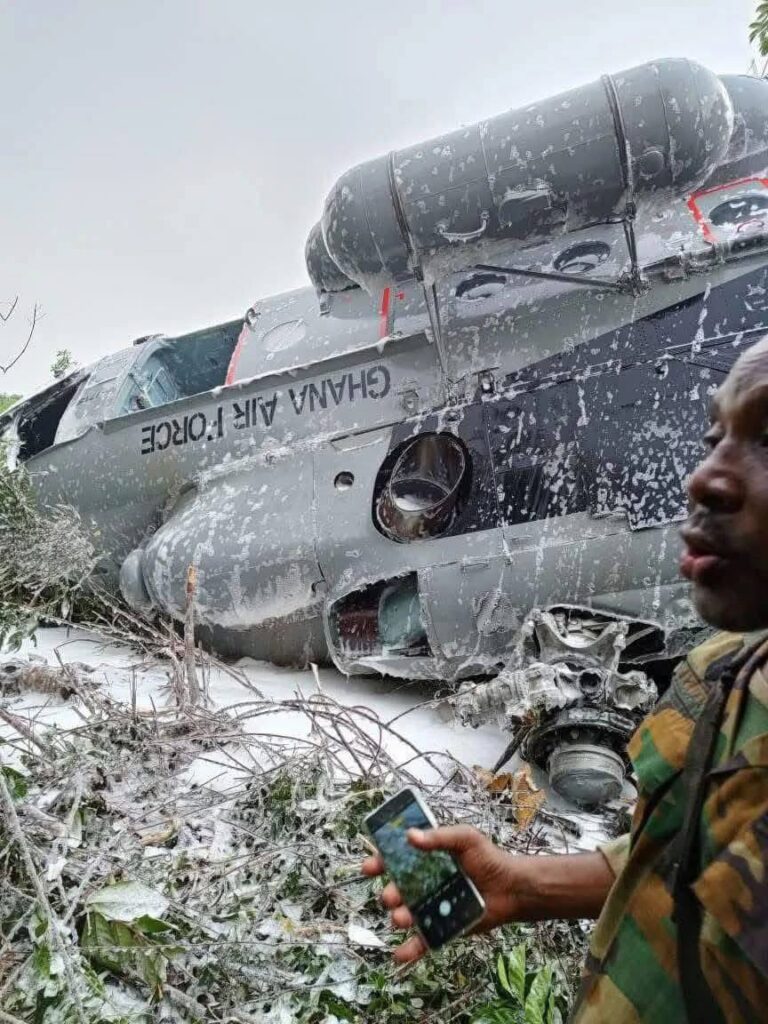Ghana is in mourning following a devastating military helicopter crash in the Ashanti region that claimed the lives of eight individuals, including the country’s ministers of defence and environment. The tragic incident occurred during a flight from the capital, Accra, to the gold-mining town of Obuasi, where the officials were scheduled to attend a national event.
The aircraft, a Ghana Armed Forces Helicopter Z9, departed Accra at 09:12 local time but later went off the radar. It was carrying three crew members and five passengers. Reports indicate that the helicopter crashed in central Ashanti, and images circulating online show the charred wreckage at the crash site.
Among the deceased are Defence Minister Edward Omane Boamah and Environment, Science and Technology Minister Ibrahim Murtala Muhammed. Their deaths have been described as a national tragedy. The crash also claimed the lives of the Deputy National Security Coordinator and former Agriculture Minister, Alhaji Muniru Mohammed, and Samuel Sarpong, Vice-Chairman of the ruling National Democratic Congress (NDC).
The aircrew has been identified as Squadron Leader Peter Bafemi Anala, Flying Officer Manin Twum-Ampadu, and Sergeant Ernest Addo Mensah. The authorities have yet to release any findings on the cause of the crash, and investigations are expected to follow.
In response, the national flag has been ordered to fly at half-mast in honor of the deceased. The President is reportedly deeply affected by the tragedy, as tributes pour in from across the country.
Edward Omane Boamah had previously served as communications minister and later as minister of environment. As defence minister, he was instrumental in addressing rising jihadist threats near the northern border with Burkina Faso. Research from 2022 had suggested that hundreds of Ghanaian youth were being recruited by extremist groups in the region.
Ibrahim Murtala Muhammed was known for his strong stance against illegal gold mining, locally referred to as Galamsey. He played a key role in government efforts to curb the environmental degradation caused by these activities, particularly during recent presidential campaigns.
The nation now grapples with the loss of key leaders who were actively engaged in critical security and environmental efforts, leaving behind a deep void in both government and society.

